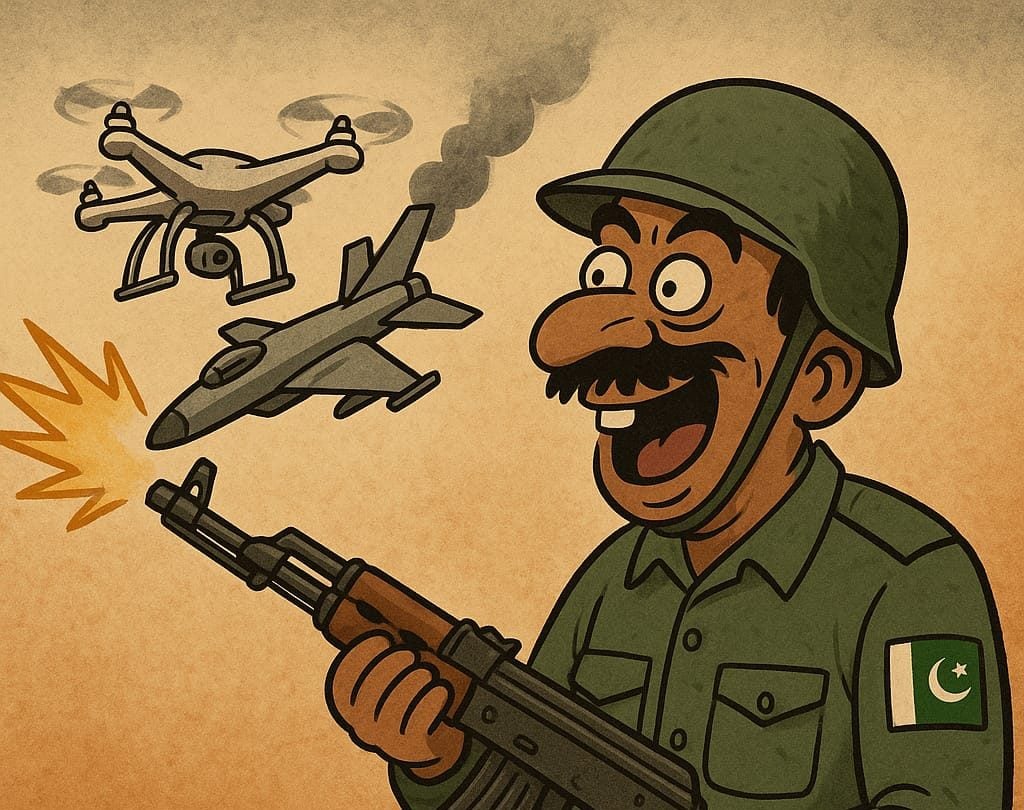As tensions soar along the India-Pakistan border following the brutal terror attack in Jammu and Kashmir’s Pahalgam, the Pakistan Air Force (PAF) has launched an aggressive media campaign to assert its military prowess. In its latest claims, PAF alleges that its fighter aircraft intercepted Indian Air Force (IAF) jets near the Line of Control (LoC), forcing them to “retreat hastily.” No official confirmation has come from the Indian side regarding these assertions, which are being widely interpreted as psychological warfare.
In addition to the Rafale interception claim, Pakistani media reports state that the PAF shot down two Indian surveillance drones over the Bhimber and Kotli sectors of Pakistan-occupied Kashmir. These allegations remain unverified, and India has so far chosen not to respond publicly.
Sources in New Delhi indicate that Prime Minister Narendra Modi has granted the Indian Armed Forces full operational autonomy, and all units along the LoC and International Border are on maximum alert.
Meanwhile, Pakistan’s defence establishment has taken to issuing late-night communiqués, accusing India of planning a “false flag” operation to justify potential military retaliation. These accusations coincide with rising global scrutiny over Islamabad’s alleged harboring of terror outfits responsible for cross-border violence.
The media narrative from Pakistan is seen by analysts as an attempt to divert attention from the international backlash following the April 22 Pahalgam massacre, in which 26 civilians, including foreign tourists, were gunned down by militants linked to Lashkar-e-Taiba’s proxy wing, The Resistance Front (TRF).
With tensions at a boiling point and diplomatic relations between the two nuclear-armed neighbors deteriorating rapidly, regional observers warn that the situation could spiral out of control without de-escalatory measures.













